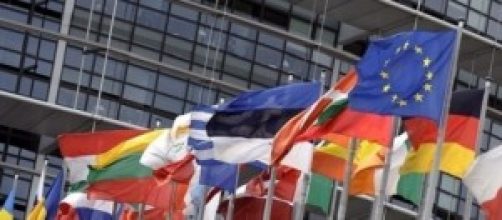Based on my most recent observation if it comes to the question of immigration in a discussion or a nice afternoon-chat with a cup of tea (or coffee), all participants will have solid opinions and strong emotions they wish to communicate, regardless of social class they belong to as well as nationality or ethnic background. We all live in a dramatically changing society, where the role of traditional classes seem to change, traditional values seem to lose their importance, what's more, we have to face cultures, customs, traditions turning up to be our next-door neighbours which not too long ago we only knew from our holidays or news on TV.
Europe is in constant change: not only her economical role in global economy but also the face of her countries and nations seem to be not "the same" anymore. She is getting old in each and every term of the word. Should we wish to understand the complexity of her recent struggle, we need to be capable of going down to the very bottom: perhaps we should revise the history of her countries, listen to the heart of her nations and express the willingness of recognising so-called traditional European values, that have been so attractive to millions of people throughout centuries. Who is European today? What makes us European? What makes us outstanding and unique in the world? What is the past, current and future role of the European Union?
The first world war started exactly 100 years ago. The peace-agreements after the war completely rearrenged the map of the continent. New countries (Slovakia, Romania) were born, other kingdoms (such as the Austrian-Hungarian Monarchy) disappeared. Slightly more then 20 years ago there was a very cruel war taking place in former-Yugoslavia: since 1997 this former huge and economically more or less strong country has been falling apart. The wounds the conflict left behind have not been healed yet: people clearly remember the brutality of soldiers of each side. Today Ukraine is in the focus of not only international political discussions but also of every one who shares interest or worry in the future of Europe.
Since 1989 people of the former Eastern-Block countries are allowed to travel freely to Western-European countries with the hope of securing a better life for their family.
Europe, in particular Western-European countries -the United Kingdom in the first place-, and Italy are still target countries for millions of migrants from (developing) thirld world countries. These people leave most of their values behind in hope of finding a safer and more stable life protected by traditional European values and democracy.
Are we able to keep our doors open to these millions of people coming and willing to live with us? How far are we able to go on the road of sharing our goods and values with strangers?
Are we (or shall we be) able to give up something from what we owe in order to make migrant people feel more comfortable amongst us? How much should we accept of values and traditions being so different from ours?
Are we able to teach the value of democracy, religious freedom as well as respect of human rights to those coming from areas of the world where these principlas might be wounded for some reason? Are we able to learn respect of women, elderlies, family and children from people coming from poor economical enviroment but with strong relationships and connections in their families?
Not only political leaders but also people of this continent should not be worn out to reply to these questions.
Without understanding our strengths as well as weaknesses&rediscovering our values (in other words, we may have to find new identification for ourselves) we will never be able to learn how to respect and accept other cultures, may they be as valuable as ours. Europe has always been multinational: the plurality of her nations as well as the strong economical and cultural relationship amongst her countries is outstanding. Europe shall have a solid ground to welcome every one who wishes to bring their life, future and hope to this old continent in order to build a new, economically and socially strong-again Europe. Together.

